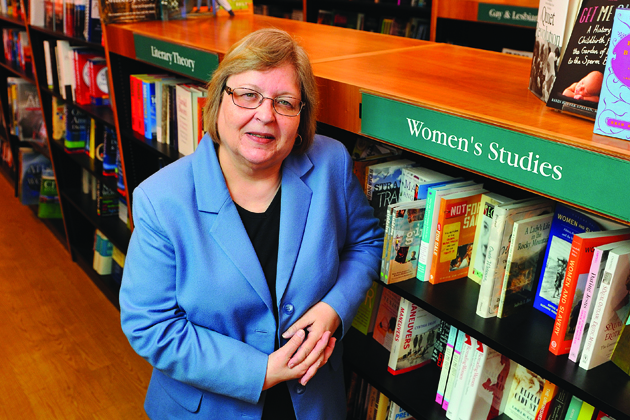
“I had some terrific professors who encouraged me to go on to grad school,” says Harris, today an English professor in the College of Liberal Arts and Sciences and director of UConn’s Humanities Institute. “I thought the most I would do is to get an MA. But once I was immersed, I realized that what I loved more than anything was doing research.”
That passion for research has led her to publish dozens of articles and book chapters, in addition to 15 books—from collections of critical essays to anthologies and, among her most recent works, a scholarly biography—all of which have stemmed from her fascination with literary history.
“My primary focus is always the literature,” says Harris, whose current projects include an anthology of international feminist writings from ancient Greece to the present. “But it’s really the culture itself that fascinates me, and what the literature was presenting and why.”
An expert in 19th-century American literature, women writers, and feminist literary theory, Harris has also come to discover over the past decade an interest specifically in the field of literature and medicine.
“I kept seeing these representations of women physicians in the novels and realized that I didn’t really know much about when women became physicians. So I started doing some research and became fascinated with it,” she says. “You start looking at things and trying to get a sort of historical and cultural perspective, and the next thing you know, you have a mass of materials.”
The result of her curiosity was Dr. Mary Walker: An American Radical (Rutgers University Press, 2009), a critical biography focused on one of the nation’s first female physicians and an activist for women’s suffrage, one of four books Harris published in 2009 alone.
For Harris, who in 2009 was also honored with the UConn Alumni Association’s Excellence in Research Award for the Humanities, exploring archives, recovering early literature, and continuing to discover the past remain crucial to understanding our present and seeing the “parallels from the 19th century to our own contemporary world.”
Within the classroom, Harris not only hopes to pass on her love for literary history and early women writers but also to challenge how students think about the past. “We don’t know everything about the past. … We can continue to learn about it,” she says. “I think if we have that in mind, we’re much more willing to also learn in the present—to understand that those are connected.”
Ultimately, she says, “Whatever we teach, our hope … is that we really want [students] to think critically. Not to say this is how you should think, but these are the skills you need to be able to question what you read or whatever commentaries you hear or whatever you’re writing yourself.”



